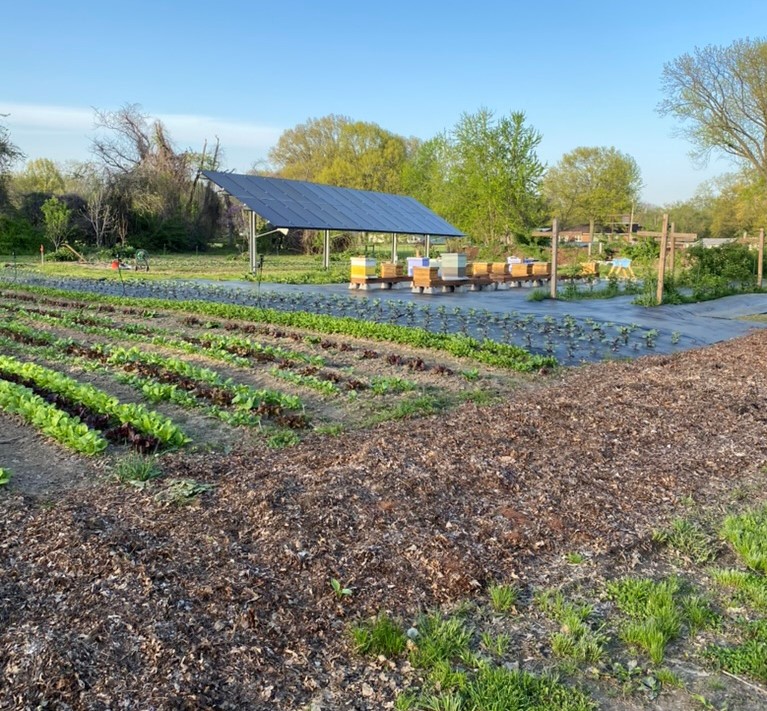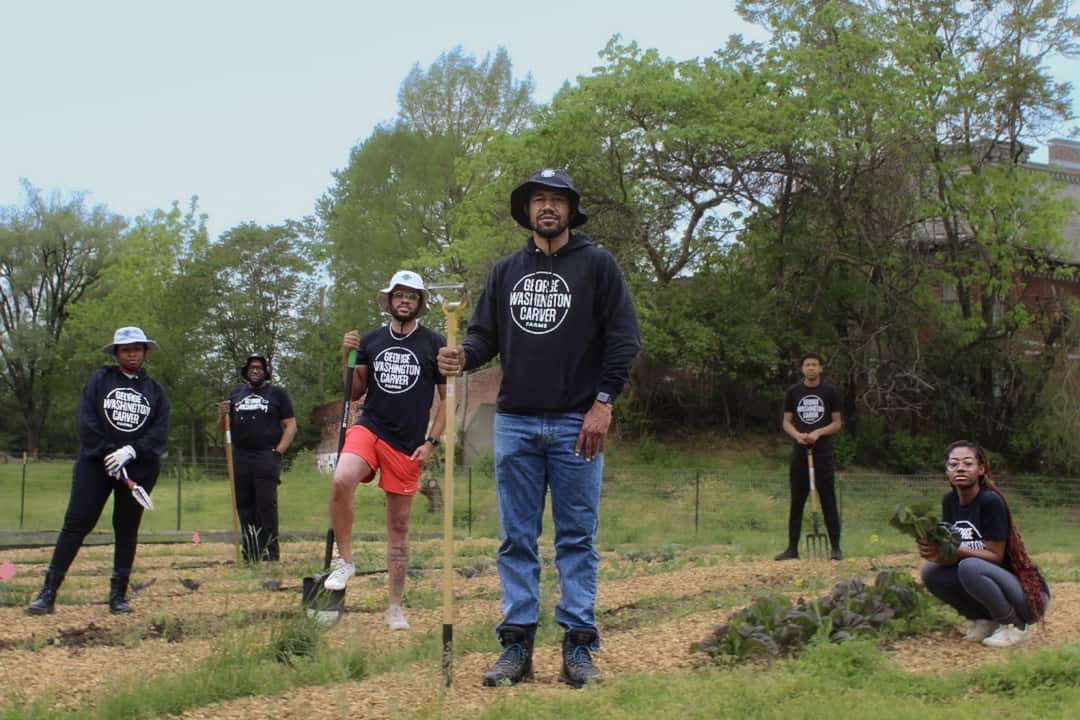Access to fresh, nutritious food is essential for maintaining good health, yet some disadvantaged St. Louis communities struggle from a severe lack of options.
“Not only is there minimal access to fresh, healthy food, but there’s a swamp of unhealthy options that bombard the residents,” said Crystal King, communications associate of A Red Circle, a north St. Louis County nonprofit dedicated to improving racial inequalities in the community.
In these low-income areas, grocery stores are few and far between, and often, those stores don’t offer the same quality and variety that can be found in more affluent neighborhoods. Compounding the problem, many residents in these communities lack adequate transportation. According to a USDA report, upwards of 2 million people in the U.S. have low grocery store or supermarket access and do not have access to a vehicle.
“We have a lot of people with health issues, such as diabetes, heart disease, and other chronic disorders because they haven’t gotten proper nutrition in a long time,” said Janett Lewis, founder of Rustic Roots Sanctuary, an urban farm in Spanish Lake.
It’s a complex problem — economic inequality and institutional racism are just a few of the contributing factors — but the following organizations are working hard for food justice in their neighborhoods:
Ujima
Prior to founding Ujima — a Swahili word that means “collective work and responsibility” — Nick Speed saw firsthand the food injustice plaguing north St. Louis City.

Ujima STL runs a community garden (pictured) as well as George Washington Carver Farms.
“While working with public school students in the area, it became apparent that not only was the area experiencing food apartheid and environmental racism, but these youth didn’t have access to food on a regular basis,” said Speed.
Believing he could make a bigger impact running his own organization, Speed started Ujima in 2018 on a part-time basis. Ujima’s mission: To “cultivate community through food justice, environmental stewardship, and youth empowerment.”
Ujima manages a community garden and, as of 2021, George Washington Carver Farms, the nonprofit’s urban farm near Fairground Park. This year, the farm and garden together are on track to produce as much as 5,000 pounds of food. Eighty percent is donated to the community or distributed on a pay-what-you-can basis. The other 20 percent goes to organizations such as City Greens Market and Operation Food Search.
Through the Sunflower Institute, Ujima gives teens opportunities to learn urban agriculture. The program also offers professional development, takes participants on outdoor activities like hiking and camping, and connects them with a black mental health professional. “We’ve been intentional about how we can support these teens holistically,” Speed said.
A Red Circle
“North County has been historically disinvested as a community, which has led to the region becoming a food swamp. There are more fast-food restaurants, liquor stores, and corner markets than grocery stores,” said King.
A Red Circle is there to help. “There are many health disparities in North County, and we are working to combat these disparities by providing residents with tools and resources to help them improve their health and wellness,” King said.

A Red Circle grows produce in north St. Louis County.
The nonprofit grows produce on its urban farm in Riverview and at its garden and agriculture center in Pine Lawn. It also hosts the Healthy Community Market on the last Saturday of every month at Zion Travelers Missionary Baptist Church, where community members can come get healthy produce and watch cooking demos using the ingredients available. On Good Food Fridays, A Red Circle gives produce away free of charge.
A Red Circle’s work is making headway in the community. When the Health Community Market started out four years ago, attendance was low. Now, there’s often a line waiting before the market opens, King says.
A Red Circle plans to open North County Community Nexus, a resource center that will include a grocery store, a learning center and other health resources.
Rustic Roots Sanctuary
When the Shop ‘n Save in Spanish Lake closed, leaving the community with a lone grocery store, Janett Lewis knew something had to be done.
“A lot of people in Spanish Lake only have one car, so Shop ‘n Save closing caused quite an issue. It caused feelings of disappointment, anger, and just feeling like, ‘here we go again,’” Lewis said. “When we first started doing this work, I often heard ‘nobody cares about Spanish Lake.’”

In 2022, Rustic Roots produced 20,000 pounds of food.
So, Lewis decided to start farming the land with the intent to increase access to healthy food for her community.
First, she turned the dilapidated property next to her home into a community garden. In 2020, she expanded, acquiring a 6.64-acre urban farm, which she named Rustic Roots Sanctuary. Last year, Rustic Roots produced around 20,000 pounds of food, including eggs and honey from the farm’s apiary, Lewis says.
About 90 percent of what Rustic Roots Sanctuary grows gets distributed to the community. Its senior delivery program, for example, brings fresh, free food directly to the homes of elderly and disabled members of the community. Janett sells the remaining 10 percent of her farm’s produce at farmers markets, including the Spanish Lake Farmers Market hosted weekly at Rustic Roots Sanctuary.
“Growing the food, then teaching people how to use the ingredients and helping them understand the importance of nutrition, that’s how we’re trying to change the conditions in low- to moderate-income neighborhoods,” Lewis says.
But that’s not all. This year, Rustic Roots also earned funding from the Missouri Department of Agriculture for a program the organization created called From Dreaming to Implementation, a farming apprenticeship program.
The community response to Rustic Roots has been incredible, Lewis says. “Everybody is so grateful. We do this work because it’s what we feel is right. We want to do something different, something beautiful and healthy, and bring the community along.”
Get Involved
Interested in fighting for food justice? Reach out to the organizations featured in this article for information on how you can volunteer:
- Ujima | ujimastl.com | 314-390-5175
- A Red Circle | aredcircle.org/get-involved | 314-328-2286
- Rustic Roots Sanctuary | rusticrootssanctuary.org | 858-717-0070
Author: Stephanie Zeilenga is a regular contributor to Terrain Magazine.
Top Image: Ujima STL.


Leave A Comment